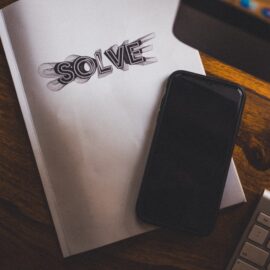
What does it take to have more patience? How can you let yourself slow down?
Anything worth doing takes time. To have more patience, you need to choose to do less, and you need to focus on the steps you’re taking rather than the goal. Doing this can help you work toward your goals more effectively.
Read on to learn how to have more patience and trust the process.
Slowing Down and Trusting the Process
One element of groundedness is learning how to have more patience : Learn to slow down and trust the process.
Anything worth doing takes time to achieve, whether it’s developing a skill, creating a piece of artwork, or building a career. If you try to rush your results, you’ll either burn out or give up from disappointment. But if you give your project time and space to unfold, and devote sustained and steady effort to it, you’ll get the results you hope for.
(Shortform note: Slowing down has benefits beyond giving you focus and energy to achieve your goals. In The Ruthless Elimination of Hurry, John Mark Comer writes that when you slow your pace, you also improve your patience. Patience makes you more relaxed as you’ll stop feeling anxious when things take time. It also helps you treat others better, improving your relationships.)
Here are two suggestions for how to slow down in life:
1. Do 10% less. Many times, we think that doing more will lead to better outcomes. However, this often isn’t true—taking a step back and doing less can be more productive than taking on unnecessary burdens and pushing yourself beyond your limits. If you feel stressed, injured, or ill, you may have been overdoing it; try doing 10% less than you think you can and should do. He writes that it’s better to move slowly but surely than to go too hard and burn out. When you do, you can perform better and make more progress in the long run.
(Shortform note: Doing 10% less aligns with the strategy of working smarter, not harder. If you’re afraid that dialing your efforts back will result in slower progress toward your goals, consider the Pareto Principle, which states that 80% of what you achieve comes from only 20% of your efforts. In other words, only a small portion of what you do gets you the results you want. Thus, by cutting out 10% of your low-impact activities, you can save time, energy, and attention for the high-impact ones.)
2. Focus on the steps, not the goal. Determine the process for achieving your goal and break it down into steps. Once you have the steps before you, stop thinking about the goal entirely and focus on doing the steps well. Focusing on reaching a goal will make you want to rush the process. This can lead you to take risks, make more mistakes, and experience stress and dissatisfaction. Focusing on the steps helps you stay disciplined and consistent, allowing you to achieve more results than if you pushed yourself too hard.
(Shortform note: In Atomic Habits, James Clear agrees, arguing that it’s better to focus on improving your systems (your routine and behavior) than achieve specific goals. He shares three advantages of focusing on systems over goals: First, systems create lasting change whereas goals only require temporary change (as once you’ve achieved them, you’ll likely stop the behaviors you adopted in the process). Second, improving your systems gives you an ongoing sense of achievement whereas goals take time to achieve. Lastly, focusing on goals makes you inflexible, and you can miss other opportunities or paths that might help you achieve what you want.)






